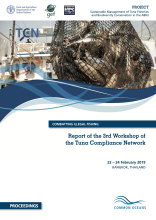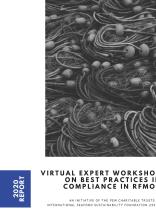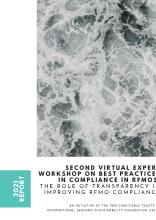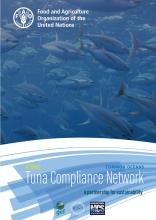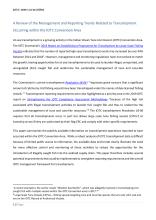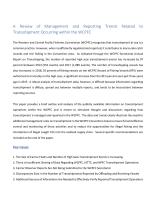Report of the 3rd Workshop of the Tuna Compliance Network
The TCN convened its 3rd Workshop in Bangkok, Thailand, from 22 to 24 February 2019. The Workshop focused on procedures to assess compliance in tuna RFMOs and gathered, among others, the officers responsible for compliance of the five tuna RFMOs and all Chairs of the Compliance Committees of these RFMOs.
Language
